|
Tulsa, Okla. – As it is widely hoped that statistical models can improve decision-making related to medical treatments, and because the cost and scarcity of medical outcomes data can make testing data from patients in a different context prohibitive, researchers including Dr. Martin Paulus, Scientific Director and President at Laureate Institute for Brain Research (LIBR) in Tulsa, Okla., examined how well a machine learning model performed across several independent clinical trials of antipsychotic medicine for schizophrenia.
Researchers found models predicted patient outcomes with high accuracy within the trial in which the model was developed, but performed no better than chance when applied out-of-sample. Pooling data across trials to predict outcomes in the trial left out did not improve predictions. These results suggest that models predicting treatment outcomes in schizophrenia are highly context-dependent and may have limited generalizability. The research findings, “Illusory Generalizability of Clinical Prediction Models,” were published in the January 11, 2024 edition of Science, the weekly journal of the American Association for the Advancement of Science (AAAS). Researchers used treatment data from five international, multisite randomized controlled trials (RCTs) obtained through the YODA Project (https://yoda.yale.edu/), selected because of their comparability and consistency. All patients had a current DSM-IV diagnosis of schizophrenia at the start of the trial, randomized patients to an antipsychotic medication or placebo, and used the same scale to measure treatment outcomes (the Positive and Negative Syndrome Scale, PANSS). All trials also included a four-week timepoint to measure outcomes and collected similar data about the patients at baseline. The team applied machine learning methods using baseline data to predict whether a patient would achieve clinically significant improvement in symptoms over four weeks of anti-psychotic treatment. Further, the team evaluated the applicability of machine learning models across four distinct scenarios to gain insights into their generalizability: assessing within-trial performance without any external validation; employing within-trial cross-validation; assessing out-of-sample performance in a paired-trial validation; and assessing performance through an extension of the paired-trial validation with a leave-one-trial-out approach. Results suggest that predictive models are fragile and that excellent performance in one clinical context is not a strong indicator of performance on future patients. Researchers from the team say this is “highly concerning” as most predictive studies today rely on internal samples for testing and validation. Further, researchers say the present study offers an “underwhelming but realistic picture of our current ability to develop truly useful predictive models” for schizophrenia treatment outcomes, and that “we should a priori remain skeptical” of any predictive model findings that lack an independent sample for validation. The research team included first author Dr. Adam Chekroud, [email protected], Spring Health, Co-Founder and President, Yale University School of Medicine; Dr. Martin Paulus, [email protected], Laureate Institute for Brain Research; and collaborators from University of Cologne, Max-Planck-Gesellschaft, United Partners Consulting, LLC, Yale University School of Medicine, University Augsburg, and Yale University. No funding source had any role in the study design, data collection, data analysis, data interpretation, writing, or submission of the report. All trials were originally funded by Janssen Research and Development. # # # CONTACT: For more information about the project, contact Martin Paulus, M.D., at Laureate Institute for Brain Research at [email protected]. For press inquiries, contact: Aimee Tonquest Mehl, Kingmaker Public Relations at [email protected]. ABOUT LAUREATE INSTITUTE FOR BRAIN RESEARCH (LIBR) Launched in 2009, the Laureate Institute for Brain Research (laureateinstitute.org) is home to a multidisciplinary team of scientists and clinical research staff who apply neuroimaging, generic, pharmacological and neuropsychological tools to investigate the biology of neuropsychiatric disorders. LIBR’s creation was supported by The William K. Warren Foundation for the purpose of conducting studies aimed at developing more effective treatments and/or prevention strategies for these disorders. The studies are led by scientists from diverse backgrounds, including physics, cognitive neuroscience, psychology, psychiatry, neurology, developmental neuroscience, computer science, and genetics.
0 Comments
Dr. Eric Garland - February 6, 2024
"Mindfulness-Oriented Recovery Enhancement: Clinical Outcomes and Neurophysiological Mechanisms of an Evidence-Based Treatment for Addiction and Chronic Pain" William K. Warren, Jr. Frontiers in Neuroscience Lecture 12:00 pm - 1:00 pm Program in the LPCH auditorium Dr. Eric Garland, PhD, LCSW is Distinguished Endowed Chair in Research, Distinguished Professor, and Associate Dean for Research in the University of Utah College of Social Work and Director of the Center on Mindfulness and Integrative Health Intervention Development (C-MIIND). Dr. Garland is the developer of an innovative mindfulness-based therapy founded on insights derived from neuroscience, called Mindfulness-Oriented Recovery Enhancement (MORE). He has published more than 230 scientific articles and received more than $80 million in research grants from the National Institutes of Health (NIH) and the Department of Defense (DOD) develop and test novel mindfulness-based treatments for addiction. In 2019 was appointed by NIH Director Dr. Francis Collins to the NIH HEAL Multi-Disciplinary Working Group comprised of national experts on pain and addiction research to help guide the nation’s $2 billion HEAL initiative to use science to halt the opioid crisis. In addition to being a clinical researcher, Dr. Garland is a licensed psychotherapist and Distinguished Fellow of the National Academies of Practice, with more than 20 years of clinical experience treating addiction. In a recent bibliometric analysis of mindfulness research published over the past 55 years, Dr. Garland was found to be the most prolific author of mindfulness research in the world. Learning objectives:
Saint Francis Health System designates this live activity for a maximum of 1 AMA PRA Category 1 Credit(s)™. Physicians should claim only the credit commensurate with the extent of their participation in the activity. For Psychologists: The Oklahoma State Board of Examiners of Psychologists, the American Psychological Association and the Oklahoma Psychological Association recognize AMA PRA Category 1 credit™. Saint Francis Health System is accredited by the OSMA For Social Workers: An application has been sent to the Oklahoma State Board of Licensed Social Workers for 1 hour Category 1 Clinical. For CADCs and LADCs Saint Francis Health System is accredited as a provider of continuing education programs for CADCs and LADCs through the Oklahoma Board of Licensed Alcohol and Drug Counselors. (1 hour) The LPC/LMFT This event as been approved by the State Board of Behavioral Health Licensure (BBHL) for 1 hour of CE. For questions , email: Lauren Haguewood at [email protected] Now that the initial fervor of New Year’s Resolutions has passed, you have plenty of time to consider what is most meaningful to you and develop goals that may truly fit with those values.
We talked with LIBR principal investigator Dr. Robin Aupperle about how to combat the tendency of people to abandon their January 1 resolutions—and instead use SMART goals to make lasting life changes. Q: How are SMART goals different from something like a New Year’s resolution? RA: Good question. There’s a tremendous push—internal and external—to start the New Year with a big, transformative resolution. For instance, I’ve heard resolutions like “I’m going to work out every single day this year,” “I’m going to save 50% of my salary,” or “I’m going to lose 50 pounds,” none of which are likely to be realistic. Some of these goals may also relate to what people feel they “should” do rather than necessarily being related to what is truly important for that individual. Q: Those seem lofty, but if we don’t try, we’ll never do it, right? RA: It can be very challenging to change our behaviors and ingrained habits. In order to be successful, the new behaviors have to be rewarding and reinforcing in some way. This feeling of reward can come from feeling successful and accomplished for being successful, or from engaging in something we value and enjoy. Q: What’s a better approach? RA: SMART goals offer a great framework for how to think about goal-setting. SMART is an acronym that helps identify and quantify elements of the goal you’re setting. Q: How does that work? RA: SMART stands for: S Specific What is the specific goal that someone wants to accomplish? “I want to increase my stamina and endurance so that I feel healthier.” M Measurable What data will be used to measure the goal? How will I measure it? “I will start by doing something that raises my heart rate for 20 minutes two times a week. My long-term goal will be to work towards 30 minutes, three times per week. I’ll make a calendar to chart my progress and keep myself accountable.” A Achievable Is the goal doable? Do you have the necessary skills and resources? “I will walk around my neighborhood (around the office, or at the mall) after work on Mondays and Thursdays, inviting friends to join me.” R Relevant How does this goal align with your values? Why is the result important? “I know I need to be less sedentary for my health. I want to be healthier in order to feel like I have more energy throughout my daily life and live longer.” T Time-Bound What’s the timeframe for accomplishing this goal, beginning to end? “I will focus on 20 minutes, two times a week for two months and assess my progress and modify my goals as needed.” Q: That’s a lot of work! RA: Much of this relates to all the thoughts going on in our heads when we are considering behavior change. This just provides a framework for organizing these thoughts, and making them specific. The main idea though, is that any attempts at change offer helpful information. If you aren’t successful in your first attempts, the key is to not get down on yourself! Simply consider what obstacles got in the way and how you can modify your plan to be more effective. For example, this could include starting smaller and breaking things down – for example, starting with walking around the block ONE time, ONCE per week to begin with….and then working up from there. Any amount of successful change goes a long way towards motivating further change. The University of California created this SMART goals template—it’s really good. You can use it to write your own SMART goals: Initial Goal (Write the goal you have in mind): ______________________________________________________________________________ 1. Specific (What do you want to accomplish? Who needs to be included? When do you want to do this? Why is this a goal?) ______________________________________________________________________________ ______________________________________________________________________________ ______________________________________________________________________________ 2. Measurable (How can you measure progress and know if you’ve successfully met your goal?): ______________________________________________________________________________ ______________________________________________________________________________ ______________________________________________________________________________ 3. Achievable (Do you have the skills required to achieve the goal? If not, can you obtain them? What is the motivation for this goal? Is the amount of effort required on par with what the goal will achieve?): ______________________________________________________________________________ ______________________________________________________________________________ ______________________________________________________________________________ 4. Relevant (Why am I setting this goal now? Is it aligned with overall values?): ______________________________________________________________________________ ______________________________________________________________________________ ______________________________________________________________________________ 5. Time-bound (What’s the deadline and is it realistic?): ______________________________________________________________________________ ______________________________________________________________________________ ______________________________________________________________________________ S.M.A.R.T. Goal (Review what you have written, and craft a new goal statement based on what the answers to the questions above have revealed): ______________________________________________________________________________ ______________________________________________________________________________ ______________________________________________________________________________ Q: Do you have any SMART goals you’re working on? RA: I am working towards building strength by focusing on lifting weights when I am at the gym. My initial goal is to go twice per week for 30 minutes each time. I am going to re-assess my goals in two months to consider if I should modify my goal. This is important to me because I want to be stronger to keep up with my kids, who are very into ninja warrior right now! I also have non-health related goals, such as writing a children’s book, which I have broken down into several steps needed to work towards that goal. Dr. Aupperle has initiated research projects at LIBR investigating neurocognitive and behavioral predictors of treatment response to behavioral activation therapy for depression and exposure therapy for anxiety. In addition, she is taking the lead in LIBR projects investigating predictors of success for females enrolled in a criminal diversion program and factors related to mental health resiliency in college students. What are the most common ways the holidays can trigger stress, anxiety, and sadness?
What can I do to minimize stress? The key word is ROUTINE, the other, CHOICES.
Dr. Olusola Ajilore - January 9, 2024
"Network Approaches to Precision Psychiatry" William K. Warren, Jr. Frontiers in Neuroscience Lecture 12:00 pm - 1:00 pm Program in the LPCH auditorium Dr. Ajilore is the Center for Depression and Resilience Professor in the Department of Psychiatry at the University of Illinois-Chicago. He graduated magna cum laude from Harvard University with a degree in biology. Dr. Ajilore did his MD/PhD degree at Stanford University where he studied the negative effects of stress hormones on the brain. His lab currently uses computational neuroimaging techniques and digital biomarkers to better track and treat neuropsychiatric disorders. Dr. Ajilore is also serves as the Associate Head for Faculty Development, the director the Mood and Anxiety Disorders Program and as a member of the National Advisory Mental Health Council for NIMH. Learning objectives:
For Physicians: Saint Francis Health System is accredited by the Oklahoma State Medical Association to provide continuing medical education for physicians. Saint Francis Health System designates this live activity for a maximum of 1 AMA PRA Category 1 Credit(s)™. Physicians should claim only the credit commensurate with the extent of their participation in the activity. For Psychologists: The Oklahoma State Board of Examiners of Psychologists, the American Psychological Association and the Oklahoma Psychological Association recognize AMA PRA Category 1 credit™. Saint Francis Health System is accredited by the OSMA For Social Workers: An application has been sent to the Oklahoma State Board of Licensed Social Workers for 1 hour Category 1 Clinical. For CADCs and LADCs Saint Francis Health System is accredited as a provider of continuing education programs for CADCs and LADCs through the Oklahoma Board of Licensed Alcohol and Drug Counselors. (1 hour) The LPC/LMFT This event as been approved by the State Board of Behavioral Health Licensure (BBHL) for 1 hour of CE. For questions , email: Lauren Haguewood at [email protected] Dr. Nick Obradovich Contributes to Annual Health and Climate Change Report Published in The Lancet11/15/2023 Lancet Countdown 2023 Report reveals the human cost of climate inaction Dr. Nick Obradovich at the Laureate Institute for Brain Research has contributed new findings presented in the eighth annual global report of the Lancet Countdown on Health and Climate Change. The report delivers a concerning health stocktake, with new global projections revealing the grave and mounting threat to health of further delayed action on climate change. “Our health stocktake reveals that the growing hazards of climate change are costing lives and livelihoods worldwide today. Projections of a 2°C hotter world reveal a dangerous future, and are a grim reminder that the pace and scale of mitigation efforts seen so far have been woefully inadequate to safeguard people's health and safety”, says Dr Marina Romanello, Executive Director of the Lancet Countdown at University College London. “With 1,337 tonnes of carbon dioxide still emitted every second, we aren’t reducing emissions anywhere near fast enough to keep climate hazards within the levels that our health systems can cope with. There is an enormous human cost to inaction, and we can’t afford this level of disengagement – we are paying in lives. Every moment we delay makes the path to a liveable future more difficult and adaptation increasingly costly and challenging.” Dr. Nick Obradovich, a contributing author to the Lancet Countdown 2023 Report and Chief Scientist for Environmental Mental Health at the Laureate Institute for Brain Research said: "We know from an increasingly large body of research that environmental stressors like extreme heat, flooding, and large storms impede our physical and mental health. They simply make it harder for us to be well, a fact we observe via our indicator on social media sentiments that decline in response to adverse climatic conditions. The broad efforts by our Lancet Countdown team to trace and monitor the myriad manners in which climatic stressors are altering human well-being represent an important undertaking. I'm pleased to be a part of this project and look forward to ever more high-quality research feeding into the process and informing the indicators and metrics we monitor going forward." Key findings from The Lancet Report
The failure to seriously mitigate climate change is self-evident in the report, with health-related losses and damages soaring globally. However, the report is launching ahead of the 28th UN Conference of the Parties of the UNFCCC (COP28), which will – for the first time – feature health as a key theme, with an official Health Day and a climate-health ministerial. The Lancet Countdown report contributes to the evidence needed to inform the negotiations, and deliver truly health-protecting climate change action. Responding to the report publication, UN Secretary-General, António Guterres (who was not involved in writing the report) says, “We are already seeing a human catastrophe unfolding with the health and livelihoods of billions across the world endangered by record-breaking heat, crop-failing droughts, rising levels of hunger, growing infectious disease outbreaks, and deadly storms and floods. “The continuing expansion of fossil fuels is a death sentence to millions. There is no excuse for a persistent delay in climate action. Temperature rise must be limited to 1.5°C to avert the worst of climate change, save millions of lives, and help protect the health of everyone on earth.” Find out more, and read the full report at lancetcountdown.org This report was funded by The Wellcome Trust. Q: What is this research about, and what are you hoping to learn?
A: We are doing a study to see if a special supplement, kind of like the keto diet, can change how the brain works in people with depression when performing tasks about good, bad, and personal experiences. It will take about 10-11 weeks to get all the information we need for this study. Q: Who is the ideal candidate to participate in this study? A: To be in this study, you should be feeling depressed. If you take medicine, you need to have taken the same amount for at least 6 weeks before joining the study. But don't join if you're pregnant, might be pregnant, or want to get pregnant soon. Also, if you're breastfeeding, want to take vitamins or change your diet during the study, have heart or kidney problems, another ongoing health issue, feel like hurting yourself, or are very scared of tight spaces, it's best not to be in the study. Q: What happens to people who take part in this research? A: We need up to 75 people for our study. Everyone will have a talk with a mental health expert, answer some questions, do brain games, get pictures of their brain, give blood and urine samples, and try either a special diet-like drink or a placebo for two months. Q: How do you decide who gets the keto-like supplement, and who gets the placebo? A: In this study, whether you will get the supplement or a powder that does do not anything is like flipping a coin. Half of the people will get the special drink, and the other half will get a pretend one. You and the doctor won't know which is which, but they can find out in case of an emergency. Q: Could being involved in this research hurt me? A: No, this study is low risk, but there are a few things that might not feel so great. First, the special drink could give you an upset stomach, nausea or diarrhea. Second, when they take your blood, it could pinch a little. Lastly, when you go into the machine for pictures, you might feel a bit claustrophobic or nervous. But don't worry, if anything bothers you, just tell the people doing the study, and they may be able to help you feel better. Q: I’ve never had an MRI. What’s that like? A: The brain pictures are taken with a special machine called an MRI. An MRI does not involve any radiation, unlike an X-ray. The MRI machine looks like a big metal tube with a strong magnetic field around it. You'll lie on a table that goes into the tube. It's important to stay as still as you can while the machine takes pictures. It can be noisy, so you'll have earplugs to make it quieter. You can talk to the people running the MRI, and if you want to stop, they'll help you get out. They may also keep an eye on your heart rate and how you breathe using a small device on your finger and a band on your chest, but it won't be tight. Q: Will being involved in this research benefit me? A: You might not see direct benefits for yourself in this study, but you're doing something really important. By being part of this research, you're helping us learn more about a keto-like supplement and how it affects the brains of people with depression. This information could be used to help others with depression in the future, so your participation is valuable for everyone. Q: How long will each study visit take? A: Each study visit may vary in length, but on average, it will take a few hours. We'll do our best to schedule appointments that work for you. Q: Will I need to come to the study site for every visit? A: Yes, you'll need to come to the study site for most visits. We want to make sure we can closely monitor your progress and collect the necessary data. Q: Are there any dietary restrictions during the study? A: While you're in the study, it's important to follow the instructions provided regarding your diet. You may be asked to avoid certain foods or beverages. Q: Will I receive any compensation for participating in the study? A: Yes, we'll provide compensation for your time and participation in the study. The amount will be discussed with you during the informed consent process. Q: What if I have to miss a study visit? A: If you need to miss a study visit, please let the study team know as soon as possible. We'll work with you to reschedule and make sure you stay safe and healthy during the study. Q: Will my personal information be kept confidential? A: Yes, your personal information and data will be kept confidential. We take your privacy seriously and will follow strict guidelines to protect your information. Q: How will I receive updates on the study's progress? A: You can ask the study team for updates on the study's progress, and we'll do our best to keep you informed throughout the research. Q: I’d like to talk to someone about participating in the study. What should I do? A: Excellent! Please visit our website: ONGOING STUDIES - Laureate Institute for Brain Research, or call 918.502.5100. Dr. Jennifer Felger - November 7, 2023
"Inflammation and Anhedonia in Depression: Biomarkers, Mechanisms, and Therapeutic Implications" William K. Warren, Jr. Frontiers in Neuroscience Lecture 12:00 pm - 1:00 pm Program in the LPCH auditorium Jennifer C. Felger, PhD, is an Associate Professor of Psychiatry and Behavioral Sciences at Emory University School of Medicine. Dr. Felger’s work combines basic and clinical approaches to understand the mechanisms by which inflammation affects neurotransmitters and circuits to cause depressive symptoms in patients with psychiatric or medical illnesses. Her current work is focused on testing novel dopaminergic and anti-inflammatory therapies that might reverse the effects of inflammation on corticostriatal reward and motor circuits with the overarching goal of identifying treatments that can be targeted to patients with high inflammation. Dr. Felger has a PhD in Neuroscience and a Master’s in Clinical Research from Emory, and she completed a postdoctoral fellowship at The Rockefeller University. Her research has been funded by R01, R61/R33 and R21 grants from NIMH and by foundations like the Brain & Behavior Research Foundation (BBRF), American Cancer Society, and the Dana Foundation. Dr. Felger has received early career or travel awards from research societies like the Society for Biological Psychiatry and American College of Neuropsychopharmacology, and in 2017 she was awarded the Klerman Prize for Exceptional Clinical Research from BBRF. She is on the Editorial Board of Neuropsychopharmacology and serves as Associate Editor for Brain, Behavior and Immunity. Learning objectives:
 As a postdoctoral research scholar at LIBR, Dr. Hannah Berg, Ph.D. is dedicated to investigating the brain basis of decision-making in clinical anxiety. The long-term goal of this work is to provide insights that will help clinicians deliver more effective interventions. Dr. Berg’s clinical training in the treatment of obsessive-compulsive disorder (OCD) has inspired her to develop a program of research focused on OCD and its characteristic behavior patterns. What is OCD?
OCD is a mental health disorder that affects people of all ages and walks of life, and involves a cycle of obsessions and compulsions. Obsessions are unwanted, intrusive thoughts, images, or urges that trigger intensely distressing feelings. Compulsions are behaviors an individual engages in to attempt to get rid of the obsessions and/or decrease distress. More information about OCD, as well as resources for treatment, can be found at iocdf.org. What is your research study about? We are investigating the brain basis of various types of decision-making in individuals with and without OCD. The aim of this study is to better understand how compulsive behaviors arise in some individuals but not others. How is the study being conducted? Participants will undergo an initial evaluation for eligibility. Eligible participants will be asked to complete questionnaires about their emotions and experiences, followed by a series of computer tasks involving decision-making. Brain images will be obtained using functional magnetic resonance imaging (fMRI). Why do you want to conduct this research? Treating OCD has been one of my favorite parts of my job. I am consistently impressed by the bravery and vulnerability that patients show when they enter treatment, and it is immensely rewarding to help someone experience freedom from obsessions and compulsions. However, our gold-standard treatments for OCD, including exposure and response prevention (ExRP) and medications, are only effective for about 50-70% of patients. By shedding light on compulsions, I hope that this research will lead to improved treatments for OCD. In particular, ExRP involves a detailed understanding of what a patient thinks and feels before, during, and after they engage in compulsions. To the extent that this research study can help clinicians understand the brain states and psychological states that lead to compulsions, it will lead to more effective delivery of ExRP. Furthermore, insights from this study may lead to the development of new treatments, including psychotherapies, medicines, and neuromodulatory approaches that offer relief from OCD. Are you looking for participants? We will be recruiting participants beginning in November 2023! This is a pilot study, so we plan to recruit a relatively small number of participants, including individuals with and without OCD. If you are interested in participating, you can contact our assessment team here. Several LIBR researchers will be participating as speakers in the 2023 Zarrow Mental Health Symposium "New Horizons in Brain Science" organized and hosted by the Mental Health Association Oklahoma on September 20-23, 2023. Register to attend the virtual conference here. Wednesday, September 20th, 20239:00am - 10:30am Neurobiology and Eating Disorders Speakers: Scott Moseman MD, CEDS Sahib Khalsa MD, PhD 11:30am - 1:00pm Practical and Neuroscientific Perspectives of Behavioral Therapy Speakers: Robin Aupperle, PhD Elisabeth Akeman Hannah Berg, PhD Thursday, September 21st, 202312:45pm - 1:45pm A Window Into the Depressed Brain Speakers: Leandra Figueroa-Hall, PhD, MSc, BSc Kaiping Burrows, PhD Friday, September 22nd, 202312:45pm - 1:45pm
Focused Ultrasound: An Emerging Neuromodulation Tool Speakers: Salvador Guinjoan, MD, PhD Aki Tsuchiyagaito, PhD |
Archives
July 2024
Categories
All
|
VISIT LIBR6655 South Yale Ave. Tulsa, OK 74136
918.502.5100 | [email protected] |
|
© 2009-2024. All Rights Reserved. Laureate Institute for Brain Research
Site powered by Laureate Institute for Brain Research

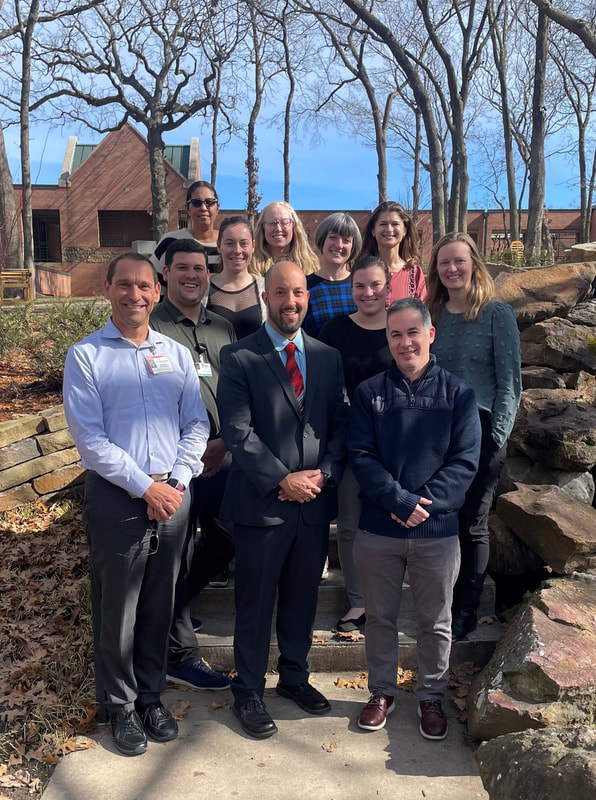


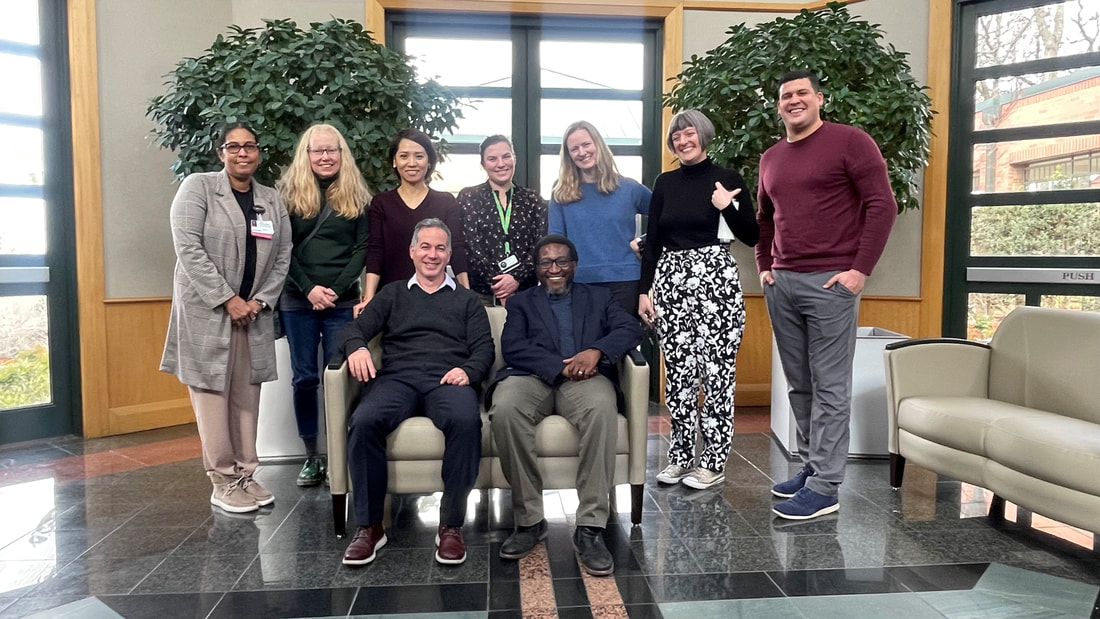
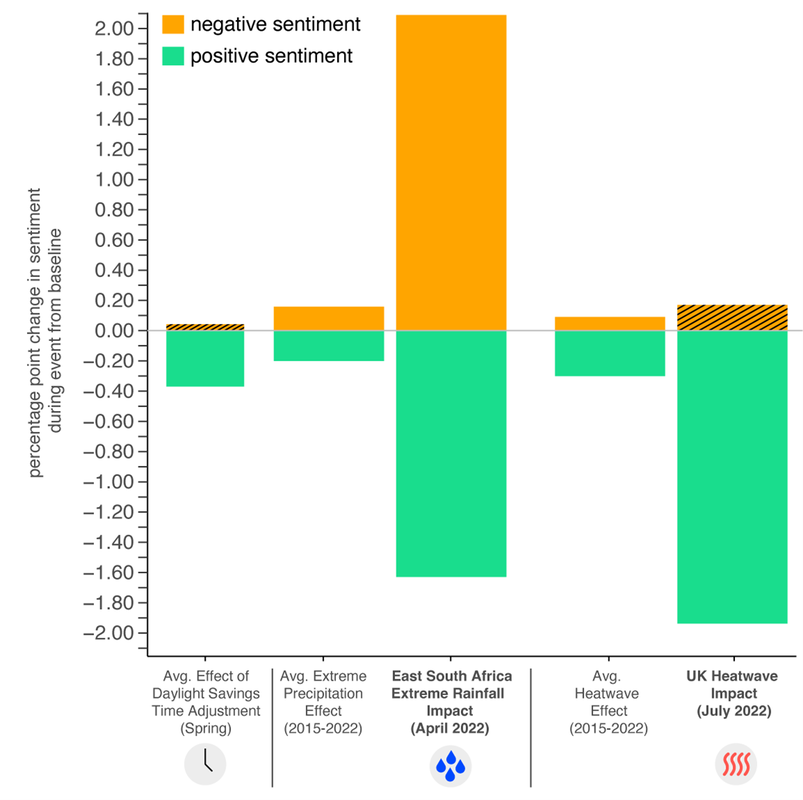
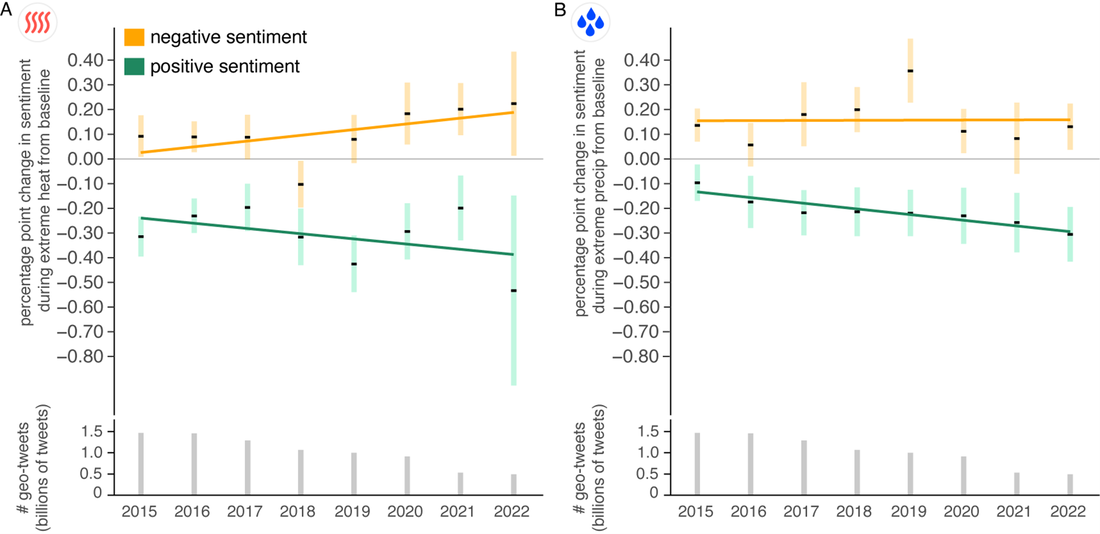
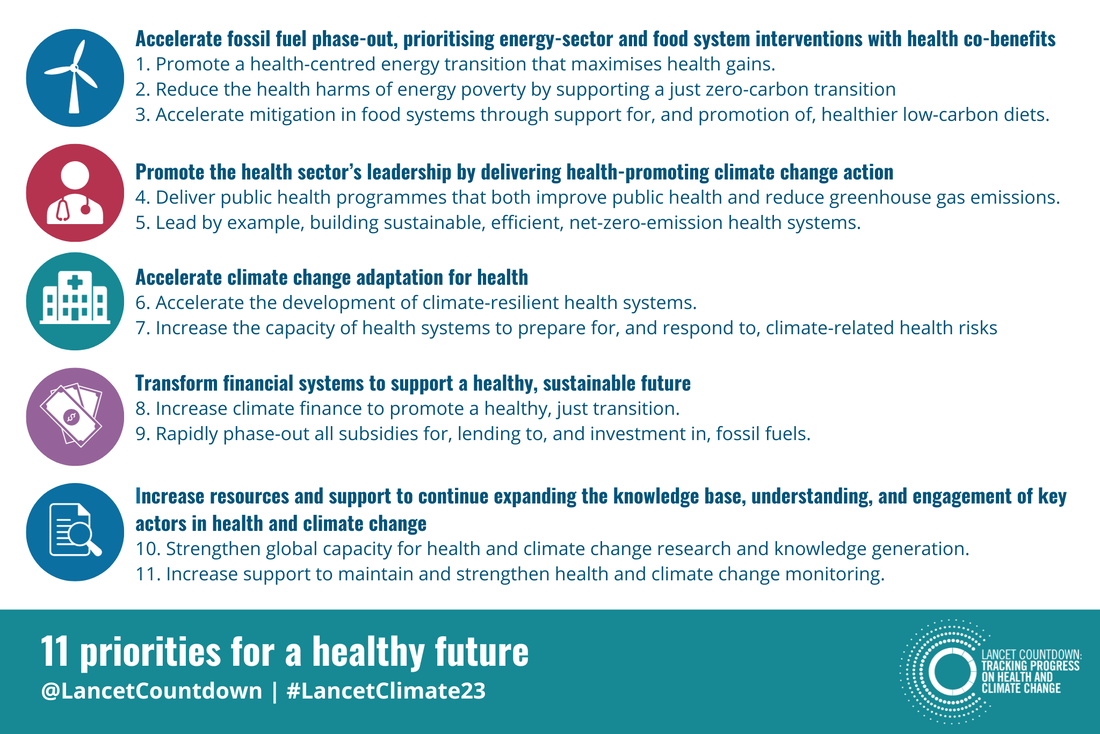

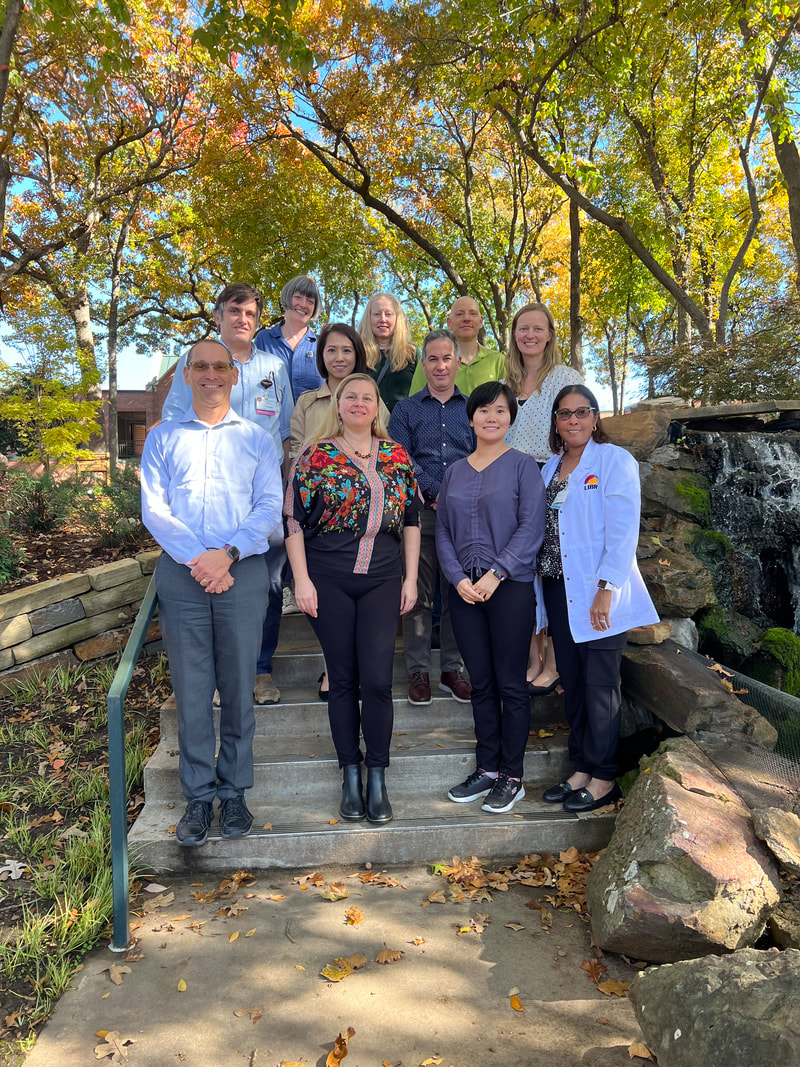
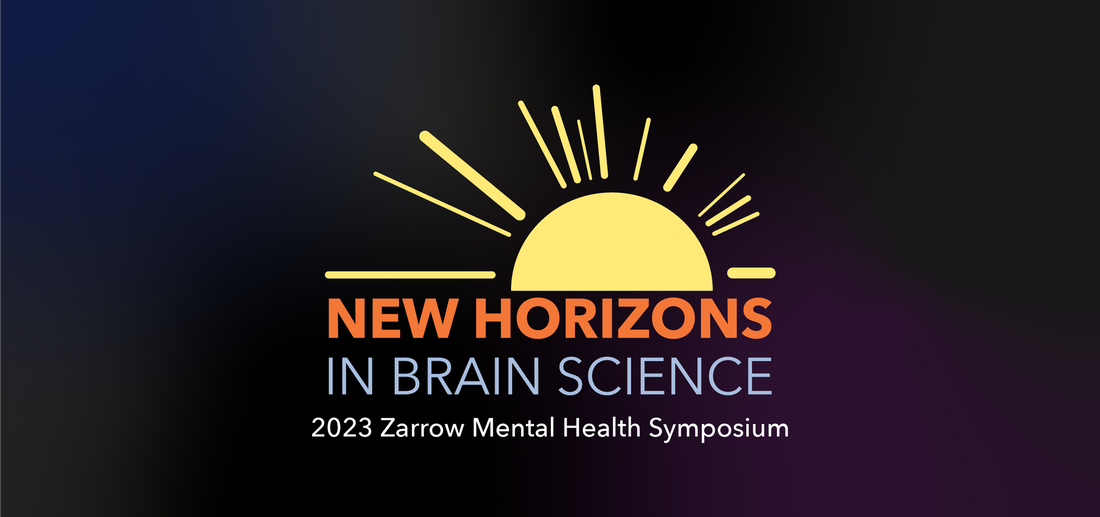
 RSS Feed
RSS Feed